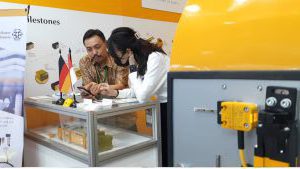Market industry automation is defined as the mix of technology and human interface in the industry. It helps an enterprise to use a wide-ranging set of automatic control technologies and software in the accomplishment of work. It speeds up the process; hence, an organized enterprise that is carrying out a task repeatedly can go for automation. It replaces the human interface and helps in completion environment which is a part of the system. Automation can be developed at many levels starting from a simple vending machine to a more complex system. As the industry today is very demanding and extremely competitive, manufacturers are compelled to introduce technologies and production methods to allow them to be more efficient in their production, to be more responsive to customer demand while looking for ways to minimize costs and improve the utilization of their resources. This, of course, applies to both the discrete and process manufacturing industries. Automation covers a broad range of simple elements such as temperature and leak detection, to the highly integrated production equipment and control systems with the emphasis on the use of new intelligent software tools and methods. The benefits of these new technologies are realized in the form of improved product quality, higher levels of productivity and agility, at lower costs. These benefits are what the automation industry, in its simplest terms, sells to the manufacturer. The best pilz automation safety LP in Indonesia
This could be anything from controlling an engine idle speed to low pollution to implementing the European Monetary Union. The automation is implemented through intelligent agents which are software entities that have a goal, are autonomous, act upon their environment to achieve their goal, and can interact with other intelligent agents. The intelligent agents will act upon the environment using an event-driven system. This is an array of events and event handlers. The agent will scan the list of event types and the conditions for that event. If both the event type and the conditions are satisfied, the event handler fires. This can be, for example, the agent simulating a customer browsing a game in order to maximize the customer’s purchase of a product. The event type is the product and the event handler will be to get the customer to buy that product. To do this, the agent will change the environmental variable of the product price and continually send the customer a message depending on the product price. The event will end when the customer buys the product. This is a more advanced example than real-time control where an automation process is interacting with the environment through an input-output system. Often, the intelligent agent event handler can be a similar scenario to the input-output event handler. The best pilz automation safety LP in Indonesia

